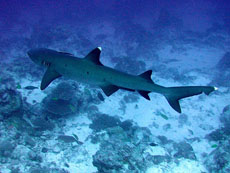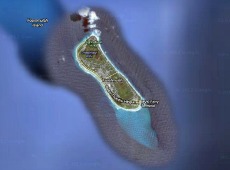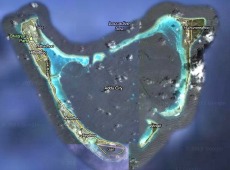The World Bank has expressed the urgent need for concerted efforts to support the Maldives in adapting to climate change, due to a projected 115 centimetres of sea level rise by 2090.
This, in addition to other climate impacts posing “disastrous consequences” for livelihoods and health, were noted in a recently released scientific report that “demands bold action now”.
The World Bank’s 2012 Turn Down the Heat report concluded a 4 degree Celsius (7.2 degrees Fahrenheit) global temperature increase is expected by the end of the 21st century unless concerted action is taken immediately.
This year’s Turn Down The Heat: Climate Extremes, Regional Impacts, and the Case for Resilience World Bank report, builds upon those findings to illustrate the range of climate change impacts the developing world is currently experiencing and outlines “an alarming scenario for the days and years ahead – what we could face in our lifetime.”
“This second scientific analysis gives us a more detailed look at how the negative impacts of climate change already in motion could create devastating conditions especially for those least able to adapt. The poorest could increasingly be hit the hardest,” stated World Bank Group President Dr Jim Yong Kim, in the report’s foreword.
“We are determined to work with countries to find solutions,” Kim continued. “But, the science is clear. There can be no substitute for aggressive national mitigation targets, and the burden of emissions reductions lies with a few large economies.”
Based on the report’s findings, the World Bank has highlighted the urgent need for concerted efforts to support the Maldives in adapting to climate change.
As one of the lowest-lying countries in the world, with an average elevation of 1.5 meters above sea level, the Maldives is extremely vulnerable to the effects of climate change, such as sea level rise.
“The Maldives is one of the most vulnerable nations to climate change impacts and has set best practice examples in adapting to climate change consequences,” stated Ivan Rossignol, World Bank Acting Country Director for Sri Lanka and the Maldives.
“The World Bank is committed to supporting the government of Maldives. The current situation is beyond intellectual debates on climate change. A concerted effort is needed to act now while we still can make a difference,” said Rossignol.
With the average global temperature increase of 2 degrees Celsius expected “in the next decades”, island economies like the Maldives, will be impacted by extreme weather patterns and rising sea levels, the report determined.
“With South Asia close to the equator, the sub-continent would see much higher rises in sea levels than higher latitudes, with the Maldives confronting the biggest increases of between 100-115 centimetres,” the report warned.
The South Asian region is projected to experience a 115 centimetre sea level rise increase by the 2090s in a 4 degree Celsius world, while a 60-80 centimetre increase is expected to occur with two degrees Celsius of warming.
“[However,] the highest values (up to 10 centimeters more) [are] expected for the Maldives. This is generally around 5–10 percent higher than the global mean.” There is a 66 percent change sea level rise will exceed 50 centimeters by the 2060s, noted the report.
 In addition to sea level rise, the compounded impacts of increased temperatures and extremes of heat, increased intensity of extreme weather events (including flooding and tropical cyclones), and changes in the monsoon pattern are already occurring and are anticipated to worsen, according to the study.
In addition to sea level rise, the compounded impacts of increased temperatures and extremes of heat, increased intensity of extreme weather events (including flooding and tropical cyclones), and changes in the monsoon pattern are already occurring and are anticipated to worsen, according to the study.
This will strain already vulnerable water resources, crop yields, and energy security in the Maldives, as well as the South Asian region, the report highlighted.
“Disturbances to the monsoon system and rising peak temperatures put water and food resources at severe risk. An extreme wet monsoon, which currently has a chance of occurring only once in 100 years, is projected to occur every 10 years by the end of the century,” stated the study.
“The consequences on livelihoods and health [in the Maldives] could be disastrous… Even at present warming of 0.8°C above pre-industrial levels, the observed climate change impacts are serious and indicate how dramatically human activity can alter the natural environment upon which human life depends,” it continues.
“The risks to health associated with inadequate nutrition or unsafe drinking water are significant: childhood stunting, transmission of waterborne diseases, and hypertension and other disorders associated with excess salinity [due to saltwater intrusion from sea level rise],” the report noted. “Other health threats are also associated with flooding, heat waves, tropical cyclones, and other extreme events.”
“[Meanwhile,] dense urban populations [such as the Maldives’ capital Male’] would be especially vulnerable to heat extremes, flooding, and disease,” according to the study’s findings.
The report also warns of the potential “domino effect” climate impacts can create that ultimately affect human development, such as the decimation of coral reefs creating cascading impacts on local livelihoods, and tourism.
Climate change impacts may also increase the likelihood of conflicts occurring, according to the study.
Ultimately, climate change impacts – particularly sea level rise – may force Maldivians to migrate, which “can be seen as a form of adaptation and an appropriate response to a variety of local environmental pressures”.
“The potential for migration, including permanent relocation, is expected to be heightened by climate change, and particularly by sea-level rise and erosion,” the report stated. However, it cautioned that population relocation poses “a whole set of other risks”.
New technological solutions and international cooperation are a must to adapt to and change the current trajectory of climate change impacts on growth and poverty reduction efforts, the study concluded.
“I hope this report will help convince everyone that the benefits of strong, early action on climate change far outweigh the costs,” said World Bank Group President Dr Jim Yong Kim.
“This report demands action. It reinforces the fact that climate change is a fundamental threat to economic development and the fight against poverty,” declared Kim.
 (0)Dislikes
(0)Dislikes (0)
(0) Reefs have been “heavily modified” over the past 30 years – due to the lack of “concurrent precautionary management” – as “resource exploitation has expanded to meet the demands of an increased human / tourist population,” the report added.
Reefs have been “heavily modified” over the past 30 years – due to the lack of “concurrent precautionary management” – as “resource exploitation has expanded to meet the demands of an increased human / tourist population,” the report added. inappropriate atoll development, sedimentation, and pollution were also identified as key threats.
inappropriate atoll development, sedimentation, and pollution were also identified as key threats.
